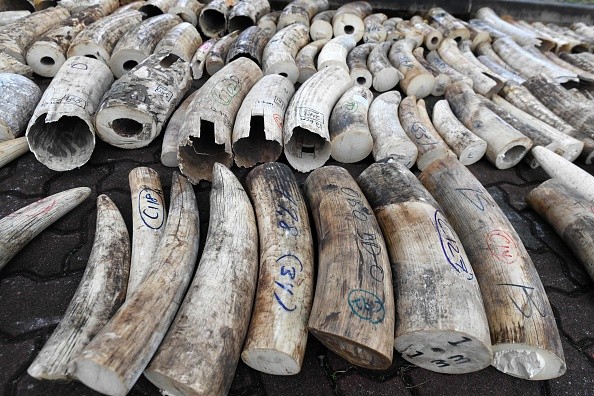Poacher given a five-year sentence for large-scale trafficking. A Ugandan wildlife trafficker who engaged in extensive trade in elephant ivory and rhinoceros horns is to serve a total of 36 months in US prison.

Serving Justice
A US federal court gave poacher a more than five-year jail sentence for trading more than 35 rhinoceroses and 100 elephants in Africa through poaching.
Poaching Case
According to the US, Liberian citizen and Ugandan resident Moazu Kromah, 49, pled guilty to two counts of wildlife trafficking and one count of conspiracy to commit wildlife trafficking. Attorney's Office for New York's Southern District. In June 2019, after working with accomplices to sell ivory in the US and Southeast Asia, authorities deported Kromah from Uganda. Agents seized multiple parcels of rhino horns sent to Manhattan purchasers. There have also been arrests of other co-defendants.
Kromah, aka "Ayoub," aka "Ayuba," aka "Kampala Man," a citizen of Liberia and resident of Uganda, was sentenced today to 63 months in prison for conspiring to traffic in rhinoceros horn and elephant ivory, both endangered wildlife species, for millions of dollars. This involved the illegal poaching of more than 35 rhinoceros and more than 100 elephants, according to the announcement made by Damian Williams, the US Attorney for the Southern District of New The United States imposed the penalty. Judge of the district Gregory H. Woods. Kromah was previously extradited from Uganda to the United States on June 13, 2019, where he has been held since. He is expected to be charged in this case.
According to US Attorney Damian Williams, his office continues to place a high premium on safeguarding natural resources and species at risk of extinction. Today's sentencing shows that individuals accountable for annihilating worldwide populations of vulnerable and endangered species protected by international treaties will suffer severe repercussions. This situation also demonstrates our resolve, together with that of the US Fish and Wildlife Service and the Drug Enforcement Administration, to collaborate with our overseas allies to apprehend and prosecute those responsible for these heinous acts abroad in a US courtroom.
Taking Animal Trafficking Laws Seriously
Judge Woods said that he agreed with the government that a heavy term was required to convey a "loud and clear message" that such extensive wildlife trafficking called for serious repercussions when he imposed the sentence.
Sneaking In Illegal Goods
Kromah and two of his accomplices were part of a multinational criminal organization (the "Enterprise") operating out of Uganda and other nations that dealt heavily in the smuggling and trafficking of rhinoceros horns and elephant ivory, two types of protected wildlife. Several US statutes and international conventions that specific US laws have adopted are broken by trade involving endangered or threatened species.
The rhinoceros horns and elephant ivory were typically exported and agreed to be exported by the defendants for delivery to foreign buyers, including one claimed to be in Manhattan, in packaging that hid the rhinoceros horns and elephant ivory in, among other things, works of art like African masks and statues. The defendants were given cash payments and international wire transfers from overseas clients, some of which were routed via US financial institutions.
For the most recent updates from the animal kingdom, don't forget to follow Nature World News!
© 2026 NatureWorldNews.com All rights reserved. Do not reproduce without permission.





